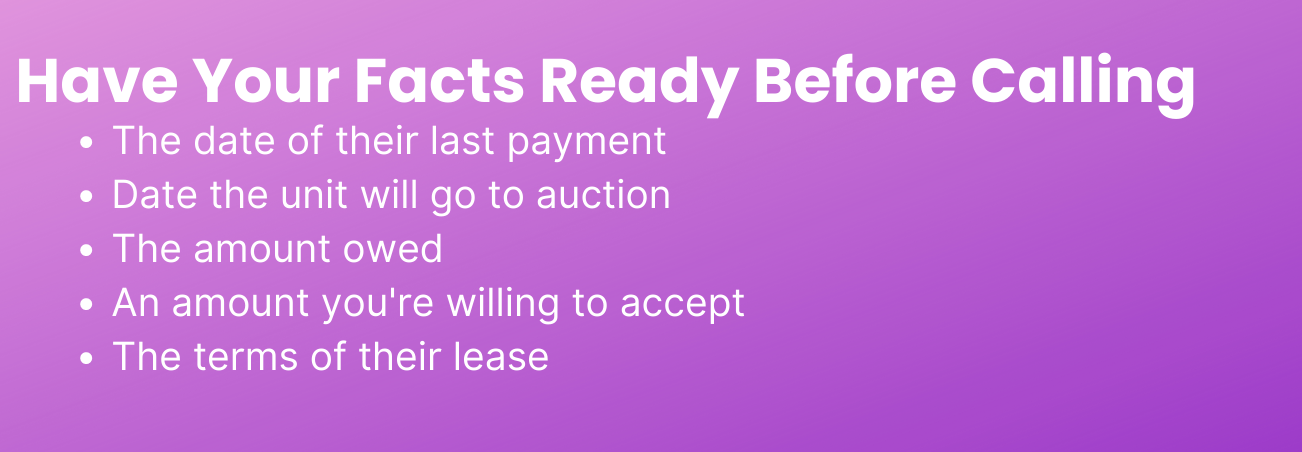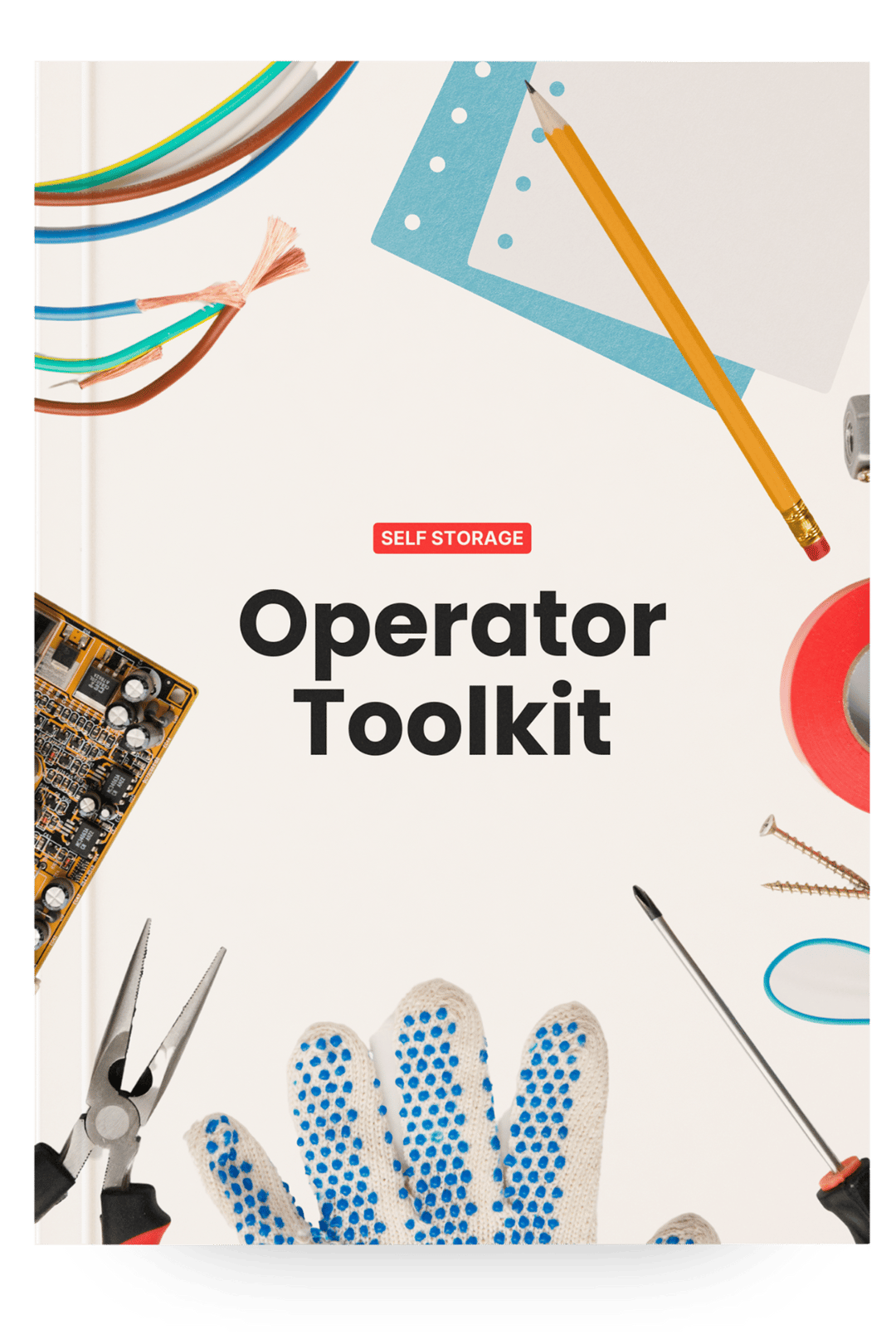Menu
March 14, 2023


Your day has started off great - you’ve knocked out the cleaning and doing the rounds, and for once, there was no crisis waiting for you when you clocked in! Couldn’t be better, except…
Now you have plenty of time to make those collection calls you’ve been putting off.
Every self storage manager dreads making collection calls, but there are ways to make them easier, faster, and more effective, which results in less time spent on the phone with irate customers. Read on!
Collection calls are an unfortunate necessity in self storage, but for many managers, this is the last task they want to tackle.
However, these calls don’t have to loom over your to-do list! We’ve put together a list of tips and strategies that can take the stress out of self storage collection calls.
We’ll delve into each of these topics, along with specific tips on making these calls shorter, more effective, and less painful. Regardless of anything else, the calls will feel better if you go in with a plan!
The first, and best, way to get out of making self storage collection calls is to reduce the number of delinquent tenants your facility has.
Of course, if this was easy you would have already done it. But there are a few ways you can encourage tenants to pay on time.
Your tenants don’t want to be behind on payments. They don’t want you calling them and bothering them any more than you want to be doing the bothering! Fairly often, your tenants are behind on payments because they either:
Both of these types of delinquencies can be avoided with good use of self storage software.
You can deal with customers who have forgotten to pay by automating payment reminders and encouraging tenants to sign up for autopay. This should be your first step in cutting down on your collection calls because it’s easy and effective - and the customers who have simply forgotten to pay are the ones you want to focus on first.
A simple, friendly reminder will get these tenants back on track without negatively impacting their opinion of your business. You can also consider forgiving any late fees occurred for these reasons - at least the first time.
A happy customer can be worth far more than the late fee!
For other customers, their credit card may have simply expired, or been replaced by a new one.
Some Property Management Software, such as SiteLink, will alert you before a credit card expires - this enables you to contact the customers before they’re late!
These steps will help you cut down on the total number of delinquent tenants, as well as weeding out those with easily-solvable problems.
Now you’ll have more time to focus on the more difficult cases.
The best thing you can do to make self storage collection calls more pleasant is to be fully prepared for them. Like lacing up your shoes before playing your sport of choice or checking your mirrors before you drive a new car, you should be as ready as possible before you start.
Before you make a collection call, one of the best ways to prepare is to be certain you have all the relevant information readily available.
Not only do you need the name of the customer, their self storage unit number, and the amount they owe, you can bring in:

You should also know as much as you can about the customer - is this the first time they’ve been late or is this a regular problem? Also, state your goals for the call; do you want to be paid in full as soon as possible, do you want to get the storage unit back, or do you just want to alert the delinquent tenant of the situation?
If a customer is in a bad spot, financially, you’re probably not the first person they’ve had call them looking for money. When doing collections, you’ll encounter a handful of different reasons or excuses why they haven’t paid yet.
Many of them will be true and compelling. Others will be unlikely or outright fabrications.
Regardless, you need to be prepared with a good answer for their rationale.
Here are some examples:
Of course, the exact response is going to vary depending on how your facility wants to approach it! Regardless of how you respond, having a script to follow will give you a ton of confidence. You’ll be ready for whatever they can throw at you!
This is a little throwback to elementary school, but your attitude matters!
You know that the customer on the other end might be combative - you need to know that you’re going to be professional, courteous, and firm.
Many collection call experts recommend smiling during the call, to set your tone. Customers can actually hear your smile through the phone! Just like in person, a smile can go a long way to creating a pleasant interaction - even if you’re not really feeling it.
Customer service maxims still apply, as much as possible - you should empathize with the customer.
“I understand, that sounds very difficult!”
But without giving up your position that they need to pay.
All of the experts also recommend focusing exclusively on the task at hand. It’s easy to tell when someone on the phone is multitasking, so even though it can be tempting to distract yourself from the unpleasant task, you’ll end up just having to make more calls that way.
ABC Amega recommends speaking more slowly than you normally would, enunciating, and making sure you don’t slur your words.
Armed with professional advice (and hopefully a script!), you can get through your daily manager checklist in no time.
Market your self storage business like a pro with these blogs:
At StoragePug, we build self storage websites that make it easy for new customers to find you and easy for them to rent from you.
